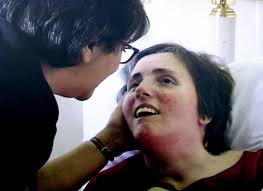
WILLS, TRUSTS, GUARDIANSHIP, POWERS OF ATTORNEY AND PROBATE SIMPLY EXPLAINED
Issue 1 of 12
Tragedy Strikes Anyone, Anywhere, Anytime
DON’T SAY YOU NEVER THINK ABOUT IT… PLAN AHEAD JUST IN CASE!
EMERGENCY PLANNING IS A NECESSITY
Have you ever thought about what could happen if you were in an accident and unconscious, unable to make decisions?
What if you needed a surgery that required a lengthy hospital recovery?
Who do you trust to make decisions for you?
Who would you rely on to manage your errands and bills, and to take care of your children or pets?
When you think of “estate planning,” are those the first questions that come to mind?
Probably not, and they aren’t the first questions most people don’t consider either. However, a vital but widely overlooked aspect of estate planning is that it includes essential planning.
MYTHS AND MISCONCEPTIONS
Many people associate the word “estate” with its most recognized use, “real estate.” Although real estate and other property (cars, jewelry, etc.) is part of an estate plan, the concept has grown to include so much more than property. It includes Emergency Planning.
So why is the emphasis still on the “stuff”?
When thinking of “estate planning,” you might have thoughts mostly of gray-haired royals, having tea in an English garden, discussing which of the children would inherit the country estate, the carriages, and the jewels. As you enter your early forties, those gray-haired people seem younger and younger, but “estate planning” still creates images of a Jane Austen novel in people’s mind.
REMAIN IN CONTROL
The most important part of the plan is YOU. It is planning who you want to speak for you, care for you, care for your children and pets if you can’t speak for or care for yourself. Emergency Planning is essential for everyone.
Tragedy can strike anyone at any time, any age, whether they have an “estate” or not. Proper planning allows you to keep a level of control over your health, your life, and everything that matters to you, for the rest of your life and beyond.
P.S. Your 18-year-old children need it too!
REMEMBER TERRI SCHIAVO’S CASE?

On Feb. 25, 1990, Terri Schiavo suffered a cardiac arrest caused by hypokalemia induced by an eating disorder.
Schiavo stabilized into a persistent vegetative state, a state of eyes-open unconsciousness with sleep–wake cycles in which patients are unaware of themselves or their environment.
Despite the poor prognosis for meaningful neurologic recovery, standard and experimental therapies were administered, to no effect, for 3 years. Only then did her husband, Michael Schiavo, accept the diagnosis of her neurologists that her condition was irreversible.
Recalling a statement that his wife had once made — “I don’t want to be kept alive on a machine” — he refused further life-sustaining measures on her behalf. However, her parents, Bob and Mary Schindler, never accepted the diagnosis of persistent vegetative state and vigorously opposed their son-in-law’s decision.
Seven years of litigation generated 30 legal opinions, all supporting Michael Schiavo’s decision on his wife’s behalf.
A simple living will could have prevented such an emotionally charged litigation, and heartbreaking divide between family members.
BOOK YOUR FREE CONSULTATION
Enter your info below. A member of our team will reach out shortly.

Weisenburger Law Offices, LLc
149, North Prospect Street, Suite 1 – Ravenna, OH 44266 – Tel: 330-296-8000
4366 Darrow Road, Suite 3 – Stow, OH 44224 – Tel: 330-686-2890